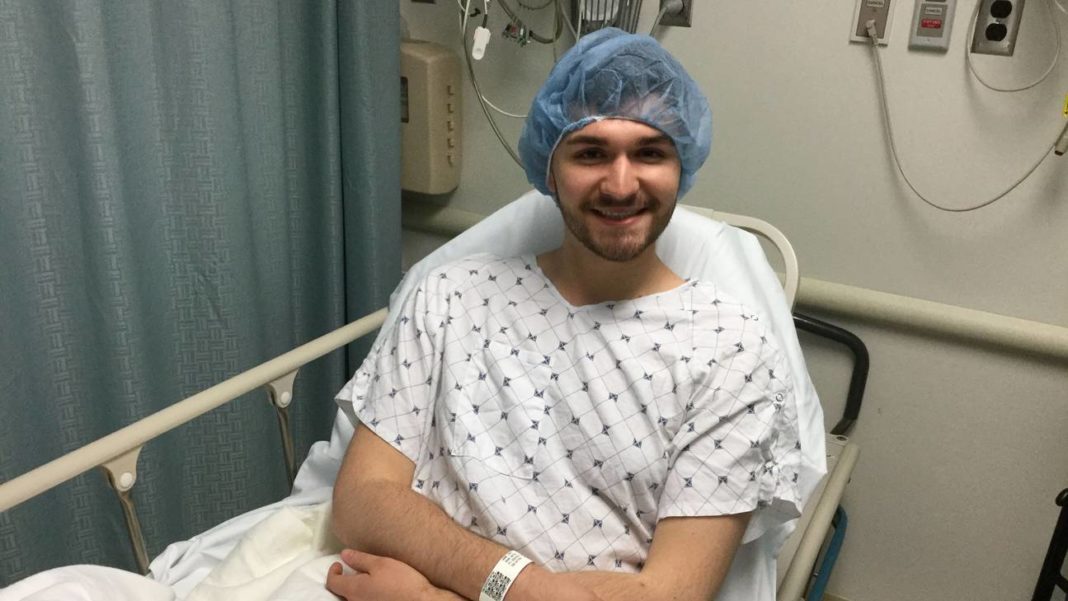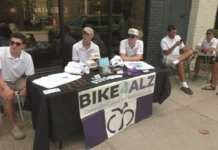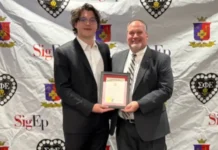The day after Delta Sigma Phi brother Barton Lynch lost a major internal organ, he was already up and walking around.
On May 29, the 24-year-old went in for a non-directed kidney donation. In most kidney transplants, the donor goes in with a recipient in mind, perhaps a sick family member or friend experiencing kidney failure. A non-directed donor, however, essentially throws their kidney on the open market for anyone who needs it. Although less common, non-directed kidney donations can be extremely impactful, with organizations like Johns Hopkins reporting that they can potentially save dozens of lives.
“For example, if you needed to get a kidney, I wanted to give mine to you, and you and I are not a match, I can give my kidney to someone else who might be in the same situation, but their person is a match for you,” Barton, a Transylvania University graduate from 2013, who works as a researcher for a consulting firm in Washington, D.C., explained to MTV News over the phone. “It opens up these long chains of people for donation.”
Lynch describes the process as surprisingly easy. First, he and his doctor decided surgery was the right choice for him. On the day of his surgery, his parents picked him up at 5:30 in the morning to go to the hospital, he changed into his gown, they knocked him out, and he woke up with one fewer kidney.
While Lynch says he was inspired to get involved because he wanted to make a difference in someone else’s life, the mission was also a personal one. During his freshman year of college, his father was diagnosed with cancer. Because of the medications the elder Lynch, who had consistently donated blood throughout Barton’s life, was taking for treatment, he was unable to continue his donations.
“My dad has always led by example on helping others, so I knew that I would be doing him proud by carrying the blood donation torch as much as possible while he could not,” Lynch recalls.
While Lynch donated throughout college, he had no choice but to find another way to continue his promise after he began dating both men and women two years ago. Per a Food and Drug Administration (FDA) policy, all men who have sex with men (MSMs) are banned from donating blood unless they refrain from same-sex intimacy for 12 months; Lynch is currently in a relationship with another man.
While activists continue to push for policies that reflect where science already is on the issue, Lynch hopes to raise awareness about other opportunities for gay and bisexual men in the U.S. who want to get involved. He experienced no complications with his surgery and does not expect any long-term health impacts as a result of the donation; his other kidney will eventually expand to 1.5 times its volume to replace its twin.
The Monday after his surgery, Lynch was already back to work.
“I think that it’s just a good way to contribute,” he says of his experience. “It’s something that really didn’t impact me much, but it can really make a difference for somebody else.”























